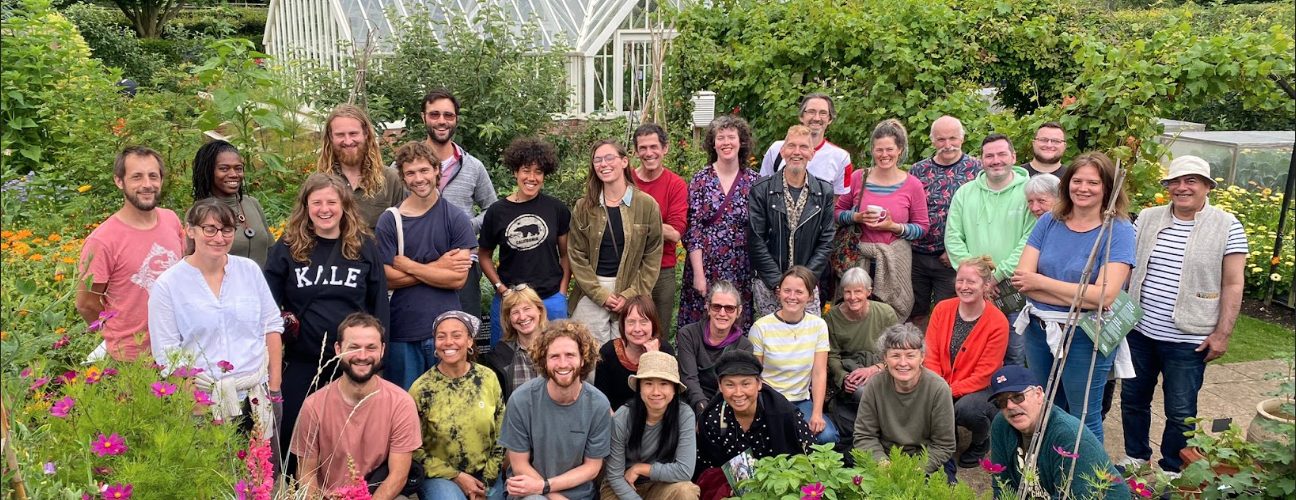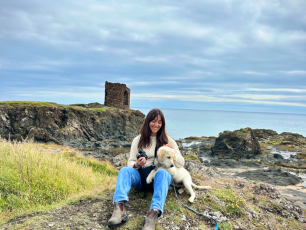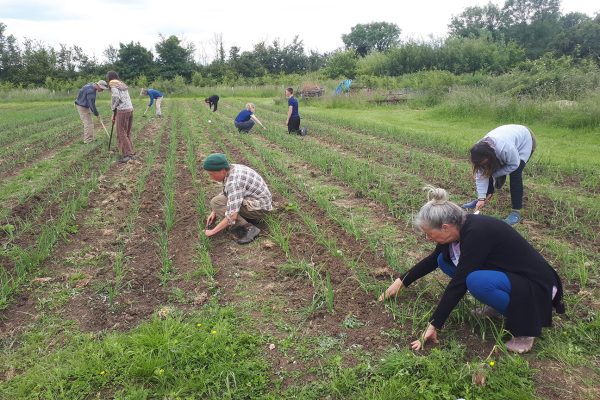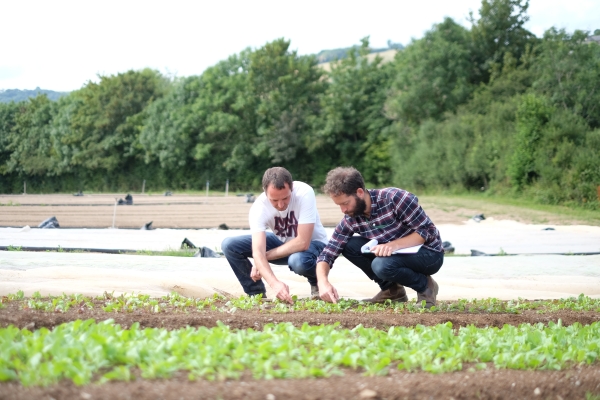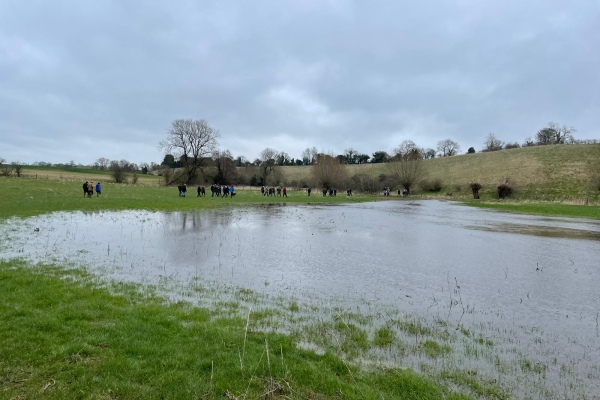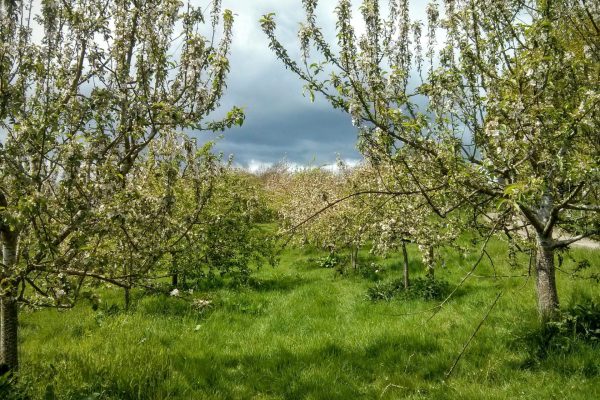Cultivating Wisdom: Why Agroecological Farmers and Landworkers are the Real Experts in the Field
Picture this: A dairy farmer in Ayrshire monitoring bat populations with advanced audio equipment; a forester in Cornwall analysing the biodiversity impacts of silvoecological practices; a grower in Midlothian studying soil microbiology under her microscope. This isn’t happening in university labs – it’s taking place on working farms across the UK. As the facilitator of the ‘Experts in Your Field‘ project, I’ve witnessed first-hand how small-scale farmers are reclaiming their rightful place at the helm of agroecological research, with findings that could transform how we approach farming’s biggest challenges.
When we first conceived this UKRI-funded Community Knowledge Fund project, our premise was simple but powerful: small-scale farmers and landworkers are already leading innovation in agroecological farming, yet they’re rarely acknowledged or rewarded by formal research institutions. We at ARC (the Agroecological Research Collaboration) wanted to change that. ARC was created by the Landworkers’ Alliance, the Organic Growers’ Alliance, the CSA Network, Pasture for Life and the Ecological Land Co-operative to support and inform an increasing research interest led by, centering on and meeting the needs of agroecological farmers, growers, foresters and other land-based workers.
Experts In Your Field provided funding, support, and equipment for farmers and foresters to conduct research on questions that matter to them. In Phase 1, we worked with over 40 landworkers to pilot the project, developing on-farm research on biodiversity while building a peer-to-peer network. For Phase 2, we expanded the cohort to more than 70 and broadened the scope to include metrics and studies on soil health, new technologies, farmer livelihoods and the social and health implications of farming, amongst other topics.
What has struck me the most whilst facilitating this project is the incredible diversity of research topics our participants pursued. Looking at the list of 40 participants who completed their two days (16 hours) of paid research time, I’ve seen everything from studying bat populations in polycultures versus monoculture fields to testing plant-based biofertilisers, from monitoring the impacts of silvoecological forestry on oak coppice to exploring how seed-saving communities affect mental health. The breadth demonstrates both the complexity of agroecological systems and the creativity of the farmers working within them.
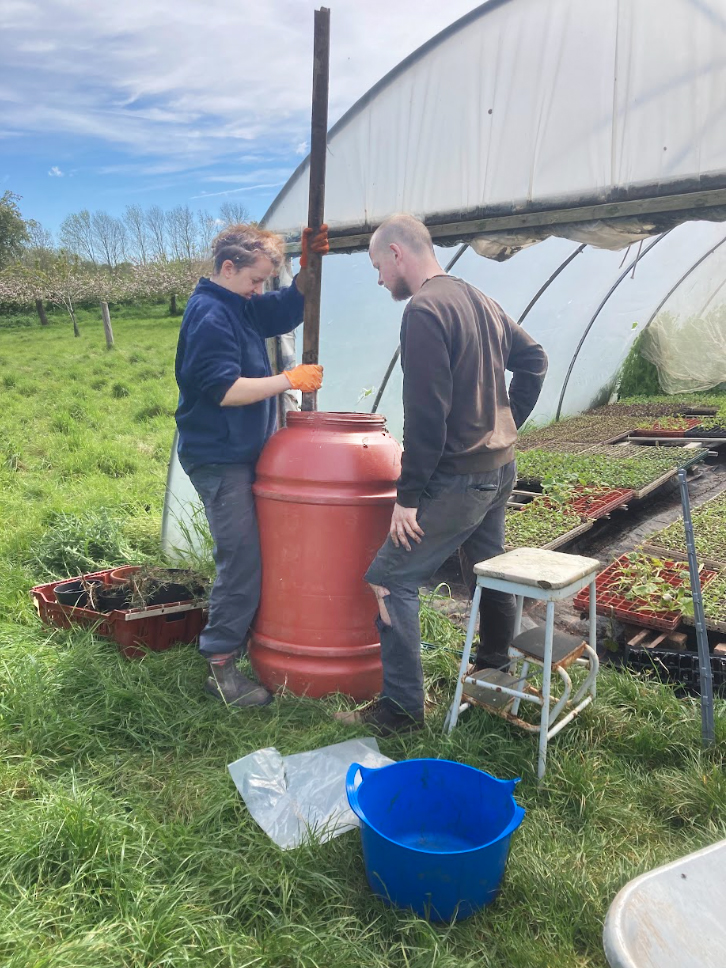
I’ve learned that addressing practical barriers is crucial. By providing specialised equipment (like audiomoths for monitoring bat populations) and financial stipends, we ensured broader participation. I firmly believe that farmers’ time and labour need to be valued appropriately – a refreshing change from the expectation that practitioners should somehow find extra hours in their already demanding schedules.
Perhaps the most rewarding aspect for me has been watching the strong peer learning networks develop. The WhatsApp groups we organised by research topics (Soil, Biofertiliser/Biochar, Biodiversity, Social/Wellbeing/Economics, Forestry & Agroforestry) became vibrant spaces for discussion, troubleshooting, and knowledge sharing. I loved seeing how these were supplemented with online workshops on specific topics chosen by participants themselves.
What excites me most is how our project challenged the conventional hierarchy of knowledge in agriculture. By recognising farmers as researchers in their own right, we validated experiential wisdom alongside academic expertise and created a new space for innovation that’s deeply rooted in practical experience.
We’ve disseminating the findings of the project through a Community Agroecology Journal and showcased them at our ‘Cultivating Wisdom’ conference in Manchester in October 2024, which brought together practitioners, academics, and policymakers. This approach to knowledge sharing is itself agroecological – diverse, participatory, and designed to build resilience within the farming community.
Looking ahead, we’re maintaining the equipment purchased as a research tool library, and I am seeking more opportunities for funding for the Agroecology Research Collaboration so that we can continue to bridge the gap between academic institutions and on-the-ground practitioners.
As we face enormous challenges in food production due to climate change, biodiversity loss, and resource constraints, I believe we should be looking to those who are already finding solutions in their fields. What breakthroughs might be possible if more funding went directly to farmer-led research? And how might our agricultural landscape transform if the expertise of those who work the land daily was consistently centred in research and policy discussions? I’d love you to get in touch with me at isobel.talks@landworkersalliance.org.uk and join us at ARC in our efforts to democratise agroecological knowledge.
Cover photo: Participants in the Growing to Seed project – credit Catherine Howell
